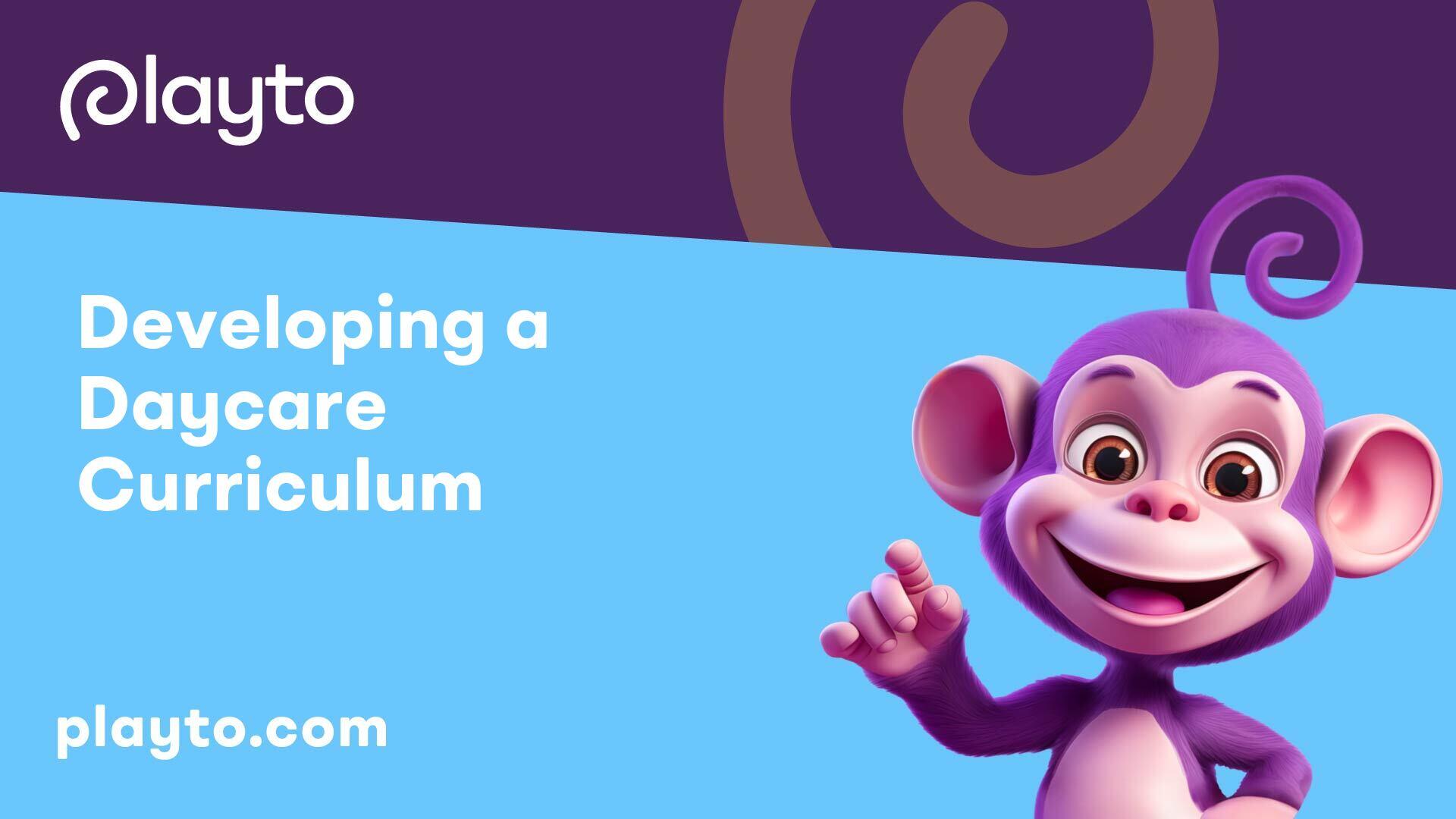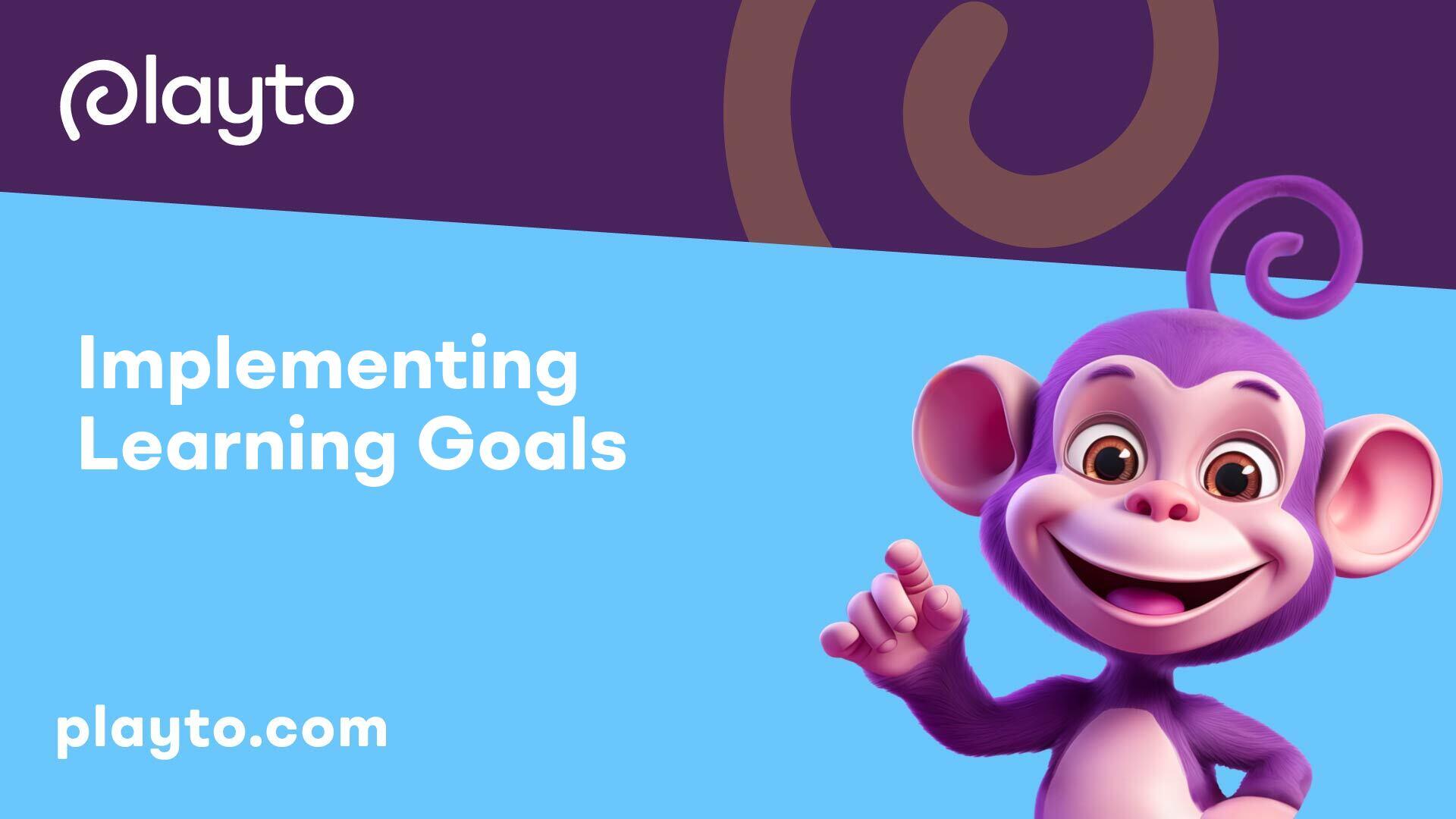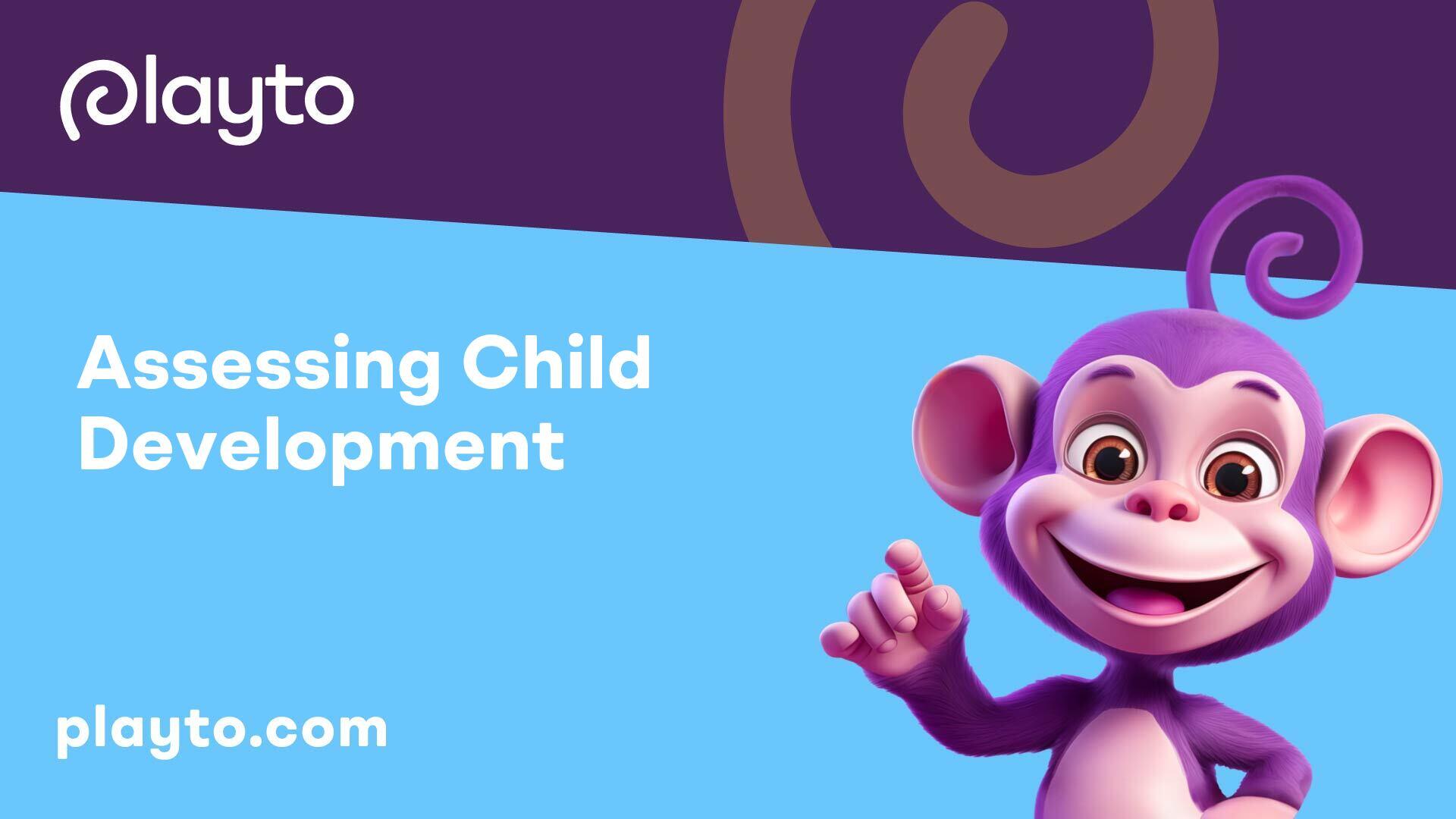
Developing a Daycare Curriculum
When it comes to preparing young children for school, a well-thought-out daycare curriculum plays a crucial role in laying the foundation for future academic success. Developing a daycare curriculum involves creating a vision for the educational journey of children in daycare and covering essential developmental domains to support their growth and learning.
Creating a Curriculum Vision
Crafting a curriculum vision is the first step in designing an effective daycare program. A daycare curriculum serves as a roadmap that outlines the knowledge, skills, behaviors, and attitudes that children are expected to acquire during their time in daycare. This vision also includes details about activities, lesson plans, and educational strategies that will foster a stimulating learning environment.
By establishing a clear curriculum vision, daycare providers can set goals and objectives that align with the needs and abilities of the children in their care. A well-defined vision helps to ensure that each child's learning journey is purposeful, engaging, and supportive of their individual growth and development.
Covering Developmental Domains
To create a comprehensive daycare curriculum, it is essential to cover all four developmental domains: physical, cognitive, social, and emotional. A holistic approach to curriculum planning ensures that children receive a well-rounded education that promotes healthy habits and fosters a well-rounded personality.
Incorporating activities and experiences that target each developmental domain helps children develop the skills they need to succeed in school and beyond. From promoting physical activity and motor skills development to encouraging problem-solving and critical thinking, a curriculum that addresses all domains sets children up for future academic achievement and personal growth.
By focusing on creating a curriculum vision and covering essential developmental domains, daycare providers can design a high-quality educational program that prepares children for the transition to school. Through evidence-based practices and alignment with state early learning standards, daycare curricula can provide a strong educational foundation that supports children's development from infancy through kindergarten entry.

Implementing Learning Goals
In the realm of early childhood education, preparing for school in daycare involves the strategic implementation of learning goals tailored to meet the developmental needs of young children. Setting annual objectives and aligning these with state standards play a pivotal role in shaping the educational journey of children in daycare settings.
Setting Annual Objectives
Early childhood educators are encouraged to establish annual learning goals and target outcomes guided by research and state early learning standards. These goals cover various subject areas such as science, mathematics, language, and more. By setting clear objectives, educators can track the progress of each child and adapt teaching strategies to meet their individual needs.
Creating well-defined annual objectives fosters a cohesive learning environment that promotes cognitive, social, and emotional development in young learners. These objectives serve as a roadmap for educators to assess the effectiveness of their teaching methods and tailor instruction to support each child's growth and readiness for formal schooling.
Aligning with State Standards
A high-quality childcare curriculum is rooted in evidence-based practices and aligns with state-provided early learning frameworks. This alignment ensures that the curriculum incorporates the essential skills needed for child development from infancy through kindergarten entry. By adhering to state standards, daycare programs can guarantee that their educational practices are in line with established benchmarks for early childhood learning [2].
In New York, following the state's early learning standards empowers educators to deliver a comprehensive curriculum that addresses key developmental areas. By adhering to these standards, daycare programs can ensure that children are equipped with the necessary skills and knowledge required for a smooth transition to formal schooling. This alignment not only benefits the children but also provides a framework for educators to evaluate their teaching practices and continuously improve the quality of education provided.
By setting clear annual objectives and aligning them with state standards, daycare centers in New York can create a structured and enriching learning environment that nurtures children's overall development and sets a strong foundation for their future academic success. This approach not only supports the holistic growth of children but also instills a lifelong love for learning from an early age.

Assessing Child Development
When it comes to preparing children for school in daycare, assessing their development plays a crucial role in tailoring educational strategies. Integrating assessments into the curriculum is essential to monitor a child's growth effectively and track their progress over time. Daycare providers can utilize tools like Vine Assessments from Procare Solutions to track developmental growth in children from birth to 5 years old.
Integrating Assessments
Assessments provide valuable insights to teachers regarding each child's current level of development in various areas. By understanding a child's strengths and areas needing improvement, educators can create targeted learning experiences to support the child's growth and development. This tailored approach helps children progress at their own pace and reach important milestones effectively.
To ensure the assessments are effective, it's important for daycare providers to follow a structured assessment framework that covers key developmental domains. Ohio's Early Learning Assessment tool, supported by the Ohio Department of Education, aids teachers in understanding each child's skills, knowledge, and behaviors. This knowledge facilitates improved preparation for school in daycare settings, fostering a smoother transition for children.
Monitoring Growth Effectively
Effective monitoring of child development not only helps in preparing children for school but also in identifying any areas where additional support may be needed. By regularly assessing a child's progress, daycare providers can ensure that educational activities and interventions are aligned with each child's unique needs.
Ohio's Early Learning Assessment tool, as mentioned by the Ohio Department of Education, offers a comprehensive evaluation of children's readiness for educational settings. It focuses on essential areas like Language and Literacy, Mathematics, and Social Foundations, providing a holistic view of each child's development. This allows educators to address any gaps in learning and provide targeted support to enhance school readiness.
By integrating assessments into daycare curricula and monitoring children's growth effectively, daycare providers can ensure that each child receives personalized attention and support to thrive academically and socially. Proper assessment and monitoring lay a solid foundation for the successful transition of children from daycare to formal schooling.
Importance of School Readiness
Ensuring that children are well-prepared for the transition to school is a fundamental aspect of early childhood education. Meeting learning milestones and fostering a smooth transition to school are key components in promoting school readiness.
Meeting Learning Milestones
Meeting specific learning milestones is essential for children's successful transition to school. Brightwheel emphasizes the significance of children acquiring certain skills before they embark on their educational journey. These milestones encompass a wide range of areas, including cognitive development, language skills, social interaction, and emotional regulation.
Through a well-structured daycare curriculum, children are provided with the necessary tools and opportunities to develop these essential skills. By achieving these learning milestones, children are better equipped to navigate the academic challenges they will encounter in a school environment.
Fostering Transition to School
The transition from daycare to school is a significant milestone in a child's life. As highlighted by the Head Start Approach to School Readiness, a successful transition requires collaborative efforts from daycare providers, families, and educational institutions. Managers, teaching staff, caregivers, and families play vital roles in creating enriching and supportive learning environments that prepare children for the academic rigors of school.
By focusing on school readiness, daycare programs aim to ensure that children possess the necessary skills, knowledge, and attitudes for success in school and later in life. This readiness encompasses physical, cognitive, social, and emotional development, as well as the family's readiness to support their child's learning journey.
At the core of fostering a smooth transition to school is the assessment of children's readiness for educational settings. These assessments provide valuable insights into each child's current developmental level, allowing educators to tailor their teaching strategies to meet the individual needs of the children in their care.
By emphasizing the importance of meeting learning milestones and facilitating a seamless transition to school, daycare programs play a crucial role in laying the foundation for children's academic success and overall development. Through a holistic approach that addresses cognitive, social, and emotional skills, daycare providers contribute significantly to preparing children for the challenges and opportunities that await them in a school setting.
State Early Learning Standards
In the context of preparing for school in daycare, understanding and adhering to the State Early Learning Standards plays a crucial role in ensuring that children are equipped with the necessary skills for academic success. Ohio's Assessment is a valuable tool that daycare providers can utilize to assess children's readiness levels effectively and tailor educational strategies accordingly.
Utilizing Ohio's Assessment
Ohio's Early Learning Assessment, as outlined by the Ohio Department of Education, covers a range of crucial areas including Social Foundations, Language and Literacy, Mathematics, Science, Social Studies, Physical Well-Being and Motor Development, and Fine Arts. This comprehensive assessment evaluates the skills, knowledge, and behaviors of preschool-aged children, providing daycare teachers with valuable insights into each child's current level of development.
By utilizing Ohio's Assessment tool, daycare providers can gain a deeper understanding of children's strengths and areas for improvement across various developmental domains. This information enables educators to design individualized learning experiences that cater to each child's unique needs, ultimately fostering a more effective school preparation experience.
Evaluating Readiness Levels
Ohio's Early Learning Assessment plays a fundamental role in evaluating children's readiness levels for educational settings, including school and daycare environments. The assessment focuses on key areas essential for school preparation, such as Language and Literacy, Mathematics, and Social Foundations, as highlighted by the Ohio Department of Education.
By assessing children's competence in these critical areas, daycare providers can identify specific areas where additional support or enrichment may be needed. This targeted approach to evaluating readiness levels ensures that children are well-prepared to navigate the academic demands of school and fosters a smoother transition to formal education settings.
In addition to supporting daycare teachers in their instructional planning, Ohio's Early Learning Assessment also offers valuable resources to parents through the Early Learning Assessment for Families program. These resources empower parents to actively engage in their child's development, providing guidance on how to support and reinforce essential skills at home, further enhancing their child's readiness for school and daycare environments.
Building Social Skills
In a daycare setting, encouraging communication and teaching conflict resolution are essential components of fostering social skills in children. These skills lay the foundation for effective interaction with peers, promoting positive relationships and overall development.
Encouraging Communication
Communication is a fundamental aspect of social skills development in children. By teaching children to express themselves freely through words or actions, they learn how to engage with others and convey their thoughts and emotions effectively. Encouraging open communication not only strengthens their social connections but also enhances their understanding of different perspectives and emotions.
Providing opportunities for children to practice their communication skills through conversations, storytelling, and group activities helps them build confidence in expressing themselves. By creating a supportive environment that values and promotes communication, children feel empowered to articulate their thoughts and feelings, leading to improved social interactions and relationships.
Teaching Conflict Resolution
Conflict resolution is a crucial skill that equips children with the ability to navigate disagreements and solve problems peacefully and constructively. By teaching children conflict resolution skills such as active listening, compromise, and assertiveness, they learn how to manage conflicts effectively, fostering empathy, understanding, and cooperation.
Through role-playing scenarios and guided discussions, children can practice resolving conflicts in a safe and guided environment. By emphasizing the importance of listening to others, finding common ground, and respecting differing opinions, children develop the skills needed to address conflicts with empathy and maturity.
Encouraging children to work through conflicts collaboratively helps them cultivate a sense of fairness, empathy, and respect for others' perspectives. Learning to negotiate, compromise, and find mutually beneficial solutions not only enhances their social skills but also promotes a harmonious and inclusive daycare environment.
By prioritizing friendships in daycare and providing opportunities for social interactions, daycare centers play a crucial role in fostering the social skills development of children. Through guided communication and conflict resolution practices, children learn to engage effectively with others, build meaningful relationships, and navigate social situations with confidence and empathy.
Early Literacy and Numeracy
In the realm of preparing for school in daycare, one of the essential aspects is fostering early literacy and numeracy skills in young children. Language skills are foundational for both literacy and numeracy development and play a crucial role in shaping a child's educational journey.
Importance of Language Skills
Language skills are fundamental in the early years as they lay the groundwork for literacy and numeracy acquisition. Children's language abilities undergo rapid development during early childhood and serve as the building blocks for future academic success. Research underscores the significance of language proficiency, especially vocabulary, in shaping early numeracy skills. For instance, a child's vocabulary knowledge is closely linked to their understanding of number-related concepts, even at a tender age of two years [3].
Encouraging language development in daycare settings can involve reading to children, engaging in conversations, and introducing them to a variety of words and concepts. Creating a language-rich environment where children are exposed to diverse vocabulary and linguistic experiences can significantly enhance their literacy and numeracy readiness.
Mathematical Language Development
In addition to language skills, mathematical language development is paramount for early mathematical learning. Two key dimensions of mathematical language include quantitative language (e.g., more than, less than) and spatial language (e.g., under, above). Mastering these dimensions is crucial for children to grasp mathematical concepts and problem-solving skills as they progress in their educational journey.
The interactions children have with their caregivers play a vital role in shaping their mathematical language skills. Through engaging activities, such as counting objects, identifying shapes, and describing spatial relationships, children can enhance their mathematical vocabulary and comprehension. By incorporating math-related language into daily routines and activities, daycare providers can effectively support children in developing a strong foundation in numeracy.
By recognizing the interconnectedness of language skills with early literacy and numeracy development, daycare centers can create a nurturing environment that fosters holistic growth and prepares children for a successful transition to formal schooling. Encouraging language enrichment and mathematical language exposure in daycare settings sets the stage for children to embark on a journey of continuous learning and academic achievement.
Emotional and Social Skills
In a daycare setting, nurturing emotional and social skills in children plays a pivotal role in their overall development and readiness for school. Two essential aspects of this development are focusing on empathy and encouraging cooperation and sharing.
Developing Empathy
Empathy is a fundamental skill that allows children to understand and share the feelings of others, fostering strong relationships and effective communication. Activities that promote empathy, such as reading storybooks and discussing characters' emotions, help children see situations from different perspectives and enhance their ability to relate to others [4].
By developing empathy in daycare, children learn to recognize and validate the emotions of their peers, leading to a supportive and inclusive environment conducive to positive social interactions. These skills lay a strong foundation for healthy relationships, conflict resolution, and emotional intelligence.
Promoting Cooperation and Sharing
Promoting cooperation and sharing in daycare settings is essential for fostering social skills and creating a harmonious environment. Encouraging children to share resources instills empathy, consideration for others, and the importance of working together. Praising children when they practice sharing reinforces positive behavior and reinforces the value of cooperation.
Teaching children to share their toys and belongings not only cultivates empathy but also encourages teamwork and builds a sense of community among peers. Children learn valuable lessons in compromise, patience, and respect for others' needs through these shared experiences.
Fostering Sharing Skills in Preschoolers:
AgeSkill Development Techniques3-4 years- Using timers to practice turn-taking- Implementing problem-solving strategies during play- Modeling sharing behavior and reinforcement of positive actions
Fostering these social skills not only prepares children for the social dynamics of school but also equips them with essential competencies for navigating various social situations they will encounter as they grow [5]. By focusing on empathy, cooperation, and sharing, educators and caregivers can lay a solid foundation for children's emotional and social development, setting the stage for success in both school and life.
References
[2]:
[3]:
[4]:
[5]: